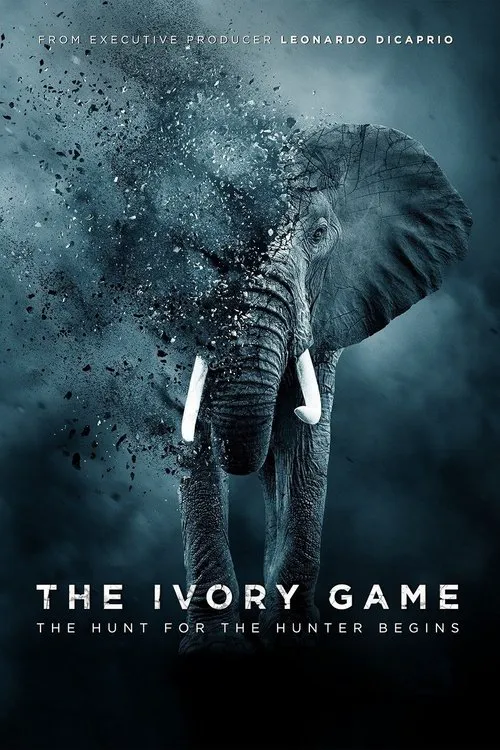The Ivory Game

Plot
The ivory trade, a long-standing and devastating issue in the African wildlife world, has been the focus of wildlife activist and filmmakers Kathryn Bigelow's protégée, Kief Davidson, along with the Oscar-winning documentarian Richard Ladkani in their collaborative documentary, "The Ivory Game." The film delves deep into the complex and sinister world of ivory trafficking, showcasing the unrelenting fight against its perpetuation. Narrated by Meryl Streep, the documentary takes viewers on an immersive journey to the African savannah, where poachers, often driven by desperation and a lack of understanding of the devastating consequences of their actions, ruthlessly hunt and slaughter elephants in order to harvest their valuable ivory tusk. This brutal trade, which has been deemed a global catastrophe by both conservationists and scientists, has resulted in the alarming decline of the elephant population, with over 100,000 elephants slaughtered from 2011 to 2015. On the ground, investigators and wildlife activists, often putting their own lives at risk, work tirelessly to track down and apprehend ivory traffickers, as well as expose the complex and sophisticated networks they utilize to smuggle ivory goods into major cities across the globe. From Nairobi to China, the film highlights the intricate web of corruption and exploitation that fuels the ivory trade, often involving high-ranking government officials, wealthy businessmen, and organized crime syndicates. The documentary provides an intimate and disturbing look into the dark underworld of ivory poaching, revealing the brutal methods used by poachers to obtain their 'trophies.' Scenes of decapitated elephants, their tusks ripped out, and their corpses left to rot, serve as a haunting reminder of the senseless killing that is driving these magnificent creatures to the brink of extinction. The film also sheds light on the devastating impact of the ivory trade on local communities, where it fuels human-wildlife conflict and drives individuals to become involved in the very trade they are fighting against. One of the most compelling aspects of the documentary is its focus on the courageous individuals who risk their lives to combat the ivory trade. From Kenyan activist and conservationist Paula Kahumbu, who has dedicated her life to exposing the poachers and traffickers that plague her country, to the anonymous investigators who work behind the scenes to gather evidence and bring perpetrators to justice, the film humanizes the often faceless heroes of the wildlife conservation world. The documentary also highlights the growing concern about the demand for ivory as it relates to the Chinese middle class. The filmmakers reveal the shocking statistic that over 90% of all ivory confiscated globally comes from China, and in some cities, ivory is more valuable than real estate. This growing demand, fueled by traditional Chinese cultural beliefs, as well as the perceived status symbol of ivory products, has created a seemingly insurmountable challenge for conservationists. Throughout the film, Davidson and Ladkani weave together a narrative that is both informative and emotionally charged, challenging viewers to confront the harsh realities of the ivory trade and the devastating impact it has on the world's ecosystems. By highlighting the tireless efforts of conservationists, investigators, and activists, "The Ivory Game" sheds light on this complex issue, inspiring viewers to join the fight against the ivory trade and work towards creating a safer future for Africa's majestic elephants. The documentary concludes with a powerful call to action, emphasizing the need for immediate and drastic measures to combat the ivory trade. As Paula Kahumbu asserts, "The war on ivory is not just a crime issue; it's a human issue." With its unflinching portrayal of the horrors of the ivory trade and its celebration of the bravery and dedication of those fighting against it, "The Ivory Game" serves as a vital reminder of the urgent need to protect these incredible animals and their habitats, and to demand justice for the individuals being driven to extinction by the cruel and relentless forces of poaching.
Reviews
Recommendations




